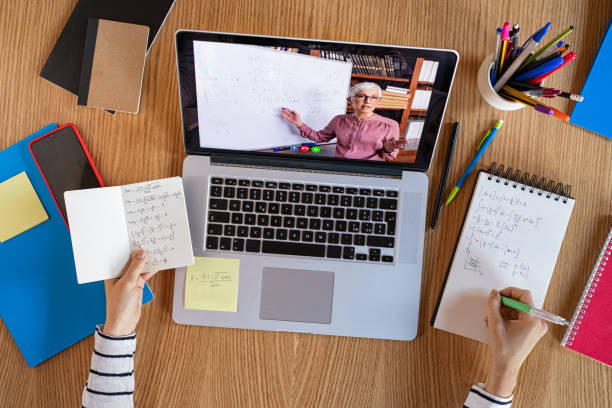We live in a digital age where progressively more and more time of our lives is spent on screens each day. The number of hours each day which the students spend surfing social media, playing online games, watching videos and series on their mobile phones and computers is at an all time high. Moreover, with the advent of online teaching where most of the teaching and learning activities are carried out remotely, the screen time of students just adds up.
The digitization of education has its fair share of advantages which is why schools and colleges today have adopted a number of digital teaching and management tools such as eLearning portals, smart classes, attendance management software and likewise. However, it is important to manage the total screen time of the students and make sure that the time they do spend on screen is spent on something productive rather than aimlessly surfing the web. If the students continue to spend a large chunk of their day viewing some or the other screen, it may interfere with their sleep cycle, strain their eyes, cut them off from their surroundings and the environment and in some cases may even make them susceptible to chronic illnesses. Here are a few ways in which teachers and parents can ensure that the screen time of students is kept in check while making sure that their learning outcomes do not suffer. So, without further ado, let’s dive in.
Consider the quality of screen time rather than duration-
Educators and parents should focus on what the students are doing with their smartphone or computer rather than strictly limiting the screen time of students. Let the students know how to use digital tools for learning something new, connecting with like minded individuals in online communities, and using their screen time for creative purposes rather than spending a lot of screen time on mundane and fruitless activities.
Encourage participation in sports-
A lot of students today use their smartphones for entertainment purposes, a large part of which is playing online games. Parents and educators should encourage the students to participate in sports and even schedule a dedicated time in the day to play using a school information management system. This will not only help the students by reducing the time they spend on screens, but will also help them in improving their cognitive and social skills. Parents can also take some time to play with their children as it will definitely get the kids interested in sports.
Switching the screen off before bedtime-
Parents should encourage the kids to set their smartphones and laptops aside at least a couple of hours before their bedtime as it will help them in getting sound REM sleep and wake up on time. It is vital because the blue light emitted by screens interferes with our sleep wake cycle by limiting the production of a key hormone melatonin in our bodies which is responsible for maintaining a healthy sleep wake cycle.
Encourage students to focus on hobbies and skills-
The time dedicated to pursuing a hobby such as painting, dancing, singing, reading, playing an instrument and likewise is almost always the time spent away from screens. Even though some hobbies can require screen time parents can easily encourage the kids to minimize screen time in this case as the kids will be more compelled to pursue their hobby rather than worrying about their screen time. Thus, encouraging the students to pursue a hobby and focus on developing their skills is a great way of reducing their screen time.
Boredom is not all bad-
We live in a time where people think that they always need to do something when they are bored. Most of the time, we search for something entertaining and before we know it, we are back to surfing on our smartphones. Educators should teach the students that being bored is not always bad, in fact it is a great opportunity to develop their imagination by using their mind to think about things or imagine instances which make them happy and exercise their brain. In this way, something good comes out of getting bored instead of increasing the screen time of the students.
Every coin has two sides. While using modern devices for learning and creative purposes is highly beneficial for the students, spending most of their time on screens is not. The ideas discussed here shall certainly help the educators and parents in effectively managing the screen time of the students.








